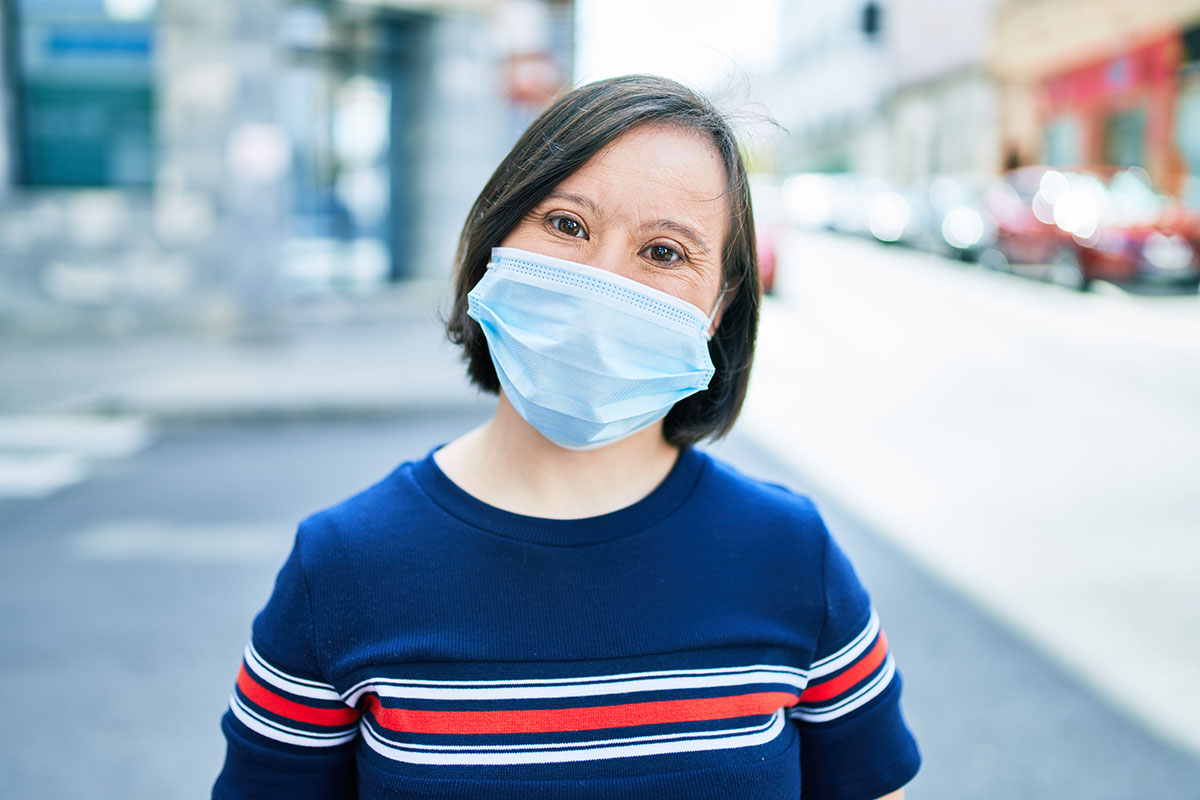COVID-19 Resource Guide and Updated Practices for Iowa & Nebraska
There’s no doubt about it–COVID-19 has changed the way many people live. While people have already made changes, even more are on the way. That’s because recommendations for staying safe and healthy change as we learn more about the coronavirus, its new variants, and how the sickness spreads from one person to the next.
Disadvantages for People with Developmental Disabilities
Although the ongoing pandemic has impacted the lives of people around the world, members of certain subsets have been affected more dramatically, including people with developmental disabilities. For starters, most day service centers closed at least temporarily, leaving people without the support they’d grown accustomed to. Families relying on those supports found themselves scratching their heads as they tried to arrange alternative supports they were unable to provide themselves.
Depending in part on the nature of their disability, some people with developmental disabilities experienced limited access to critical resources, such as technology or transportation, once COVID-19 reared its ugly head. Some even lost access to their income as businesses closed their doors and shuttered their windows for a while at least.
Even more alarmingly, some people with developmental disabilities discovered they were at greater risk for contracting COVID-19. This discovery set off a tsunami-type wave of concern, particularly among people who have underlying conditions like diabetes that could make them even more vulnerable to the virus and its potentially devastating effects.
How to Keep Your Loved Ones Safe
If you’re wondering how you can keep your loved ones safe in such an uncertain world, know you’re not alone. Luckily, the state of Nebraska has resources available to help everyone stay safe and healthy, and they update them regularly.
If you have a loved one who lives in a residential facility for people with developmental disabilities in Nebraska, you can take comfort in knowing the state requires the facility to follow COVID-19 best practices. Canceling communal dining and extraneous group activities, screening team member, residents, and visitors for COVID-19 symptoms, and enforcing social distancing recommendations are some of the best practices adopted by many facilities, including the ones we operate in Omaha, NE.
Nebraska updated its guidelines for how people can stay safe on an individual level. Here are some of the suggestions included in the state’s COVID-19 guide:
- If you exhibit symptoms indicating you’re sick, stay home
- Wash your hands with soap and water regularly, for at least 20 seconds per wash
- Use hand sanitizer
- If you have to sneeze, use your elbow as a shield to avoid spreading germs
- Avoid touching your face unnecessarily
- Maintain a distance of at least six feet between you and others, particularly people who have the virus and those who’ve been exposed to it
- Avoid public transportation and places where people congregate, such as malls and movie theaters
- Visit the grocery store when it’s the least busy
How to Keep Your Loved Ones Connected
Staying connected during the pandemic is a challenge for many people–and it’s a challenge Hands of Heartland can help you overcome. We have the latest technology and some tried-and-true methods of communicating at our locations, which enable our guests to reach out to their loved ones. Whether they use the phone, a digital platform like Zoom, email, or snail mail, the people we support communicate with family and friends regularly.
Our team members are here to support you and your loved ones through these difficult times and all the great ones that are sure to follow. To learn more about how we can help you stay in touch with the people who matter the most to you, connect with Hands of Heartland today.

